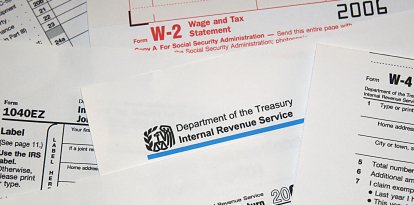After 145 years, oil giant Chevron is leaving California due to stifling regulations and relocating to Texas
It is the second largest oil company in the United States. Its world headquarters will now be located in Houston, the capital of the country's energy industry.

Gasoline prices are seen at a Chevron gas station.
Historic Chevron, one of the few oil industry giants still clinging to stay in California has announced that it will leave behind its entire history in the Golden State and head to Texas in a move that comes as no surprise to experts.
However, despite the logic behind the move, with California being a state increasingly focused on renewable energy and thus a bureaucratic hellhole for oil companies, the move of this historic company is still a symbolic blow. Chevron, in short, was one of the great companies that, at the turn of the century, turned California into one of the world's largest oil producers, producing as much as one-fifth of all crude oil.
It is no exaggeration to say that the oil company was born, grew and made its life entirely in California since its predecessor, the iconic Star Oil, was acquired by Pacific Coast Oil Company in 1879. Eventually, Pacific was acquired by Standard Oil giving birth to Chevron, following the ratification of the Sherman Antitrust Act in 1911.
This is how Los Angeles Times reports Chevron's move to Texas: "With the announcement Friday that it was moving its headquarters from California to Texas, Chevron Corp. became perhaps one of the last dinosaurs to slip into the tar pit, a symbol of California’s monumental transition from a manufacturing and production state to the brave new world of service."
Of course, Chevron's departure underscores what California has become: a state that left manufacturing behind to embrace technology development without qualms, with Silicon Valley being the face of this era change.
According to Los Angeles Times, while California remains the seventh-largest oil producer in the entire union, its production of the crude has declined markedly since the mid-1980s. Today, in fact, it accounts for barely 2% of the U.S. total, according to the most recent numbers released by the U.S. Energy Information Administration.
This situation is no coincidence. California, for the past several decades, bet on expensive renewables to replace fossil fuels, fully embracing the electric vehicle industry and turning its back on or even inviting out companies of Chevron's ilk, which are welcomed in Texas with open arms.
In fact, The Wall Street Journal reported that Chevron's exit charts how the business climate for oil companies in the Golden State has "soured."
In its statement, Chevron said the move, among other reasons, would allow them to "co-locate with other senior leaders and enable better collaboration and engagement with executives, employees, and business partners." However, the WSJ recalls that the reason behind the decision is evident, considering the oil company's own words, Mike Wirth, who stated that the company wants to move its employees to a "hub" and, furthermore, acknowledged that the company does not agree with Californian regulatory policies.
"We believe California has a number of policies that raise costs, that hurt consumers, that discourage investment and ultimately we think that’s not good for the economy in California and for consumers," said Wirth, according to statements reported by the WSJ.
Also, not least, it should be remembered that California also has a state corporate income tax rate of 8.8%, a tax burden that Texas does not have.
Chevron's exit, in short, comes as no surprise and comes just weeks after the billionaire Elon Musk said X and SpaceX would move their headquarters to Austin, Texas.
It also comes a year after its main rival, Exxon Mobil, moved its headquarters from Irving, Texas, to Spring, an area in Harris County north of Houston.
Other major companies in the country, such as Hewlett Packard Enterprise, Oracle and Musk's own Tesla, have also fled California; a state that is seeing its citizens and companies leaving their comfort zone for different parts of the country in search of better fiscal, business and social climates. All this despite the good weather, the beaches and the very history of California and its major cities.


























